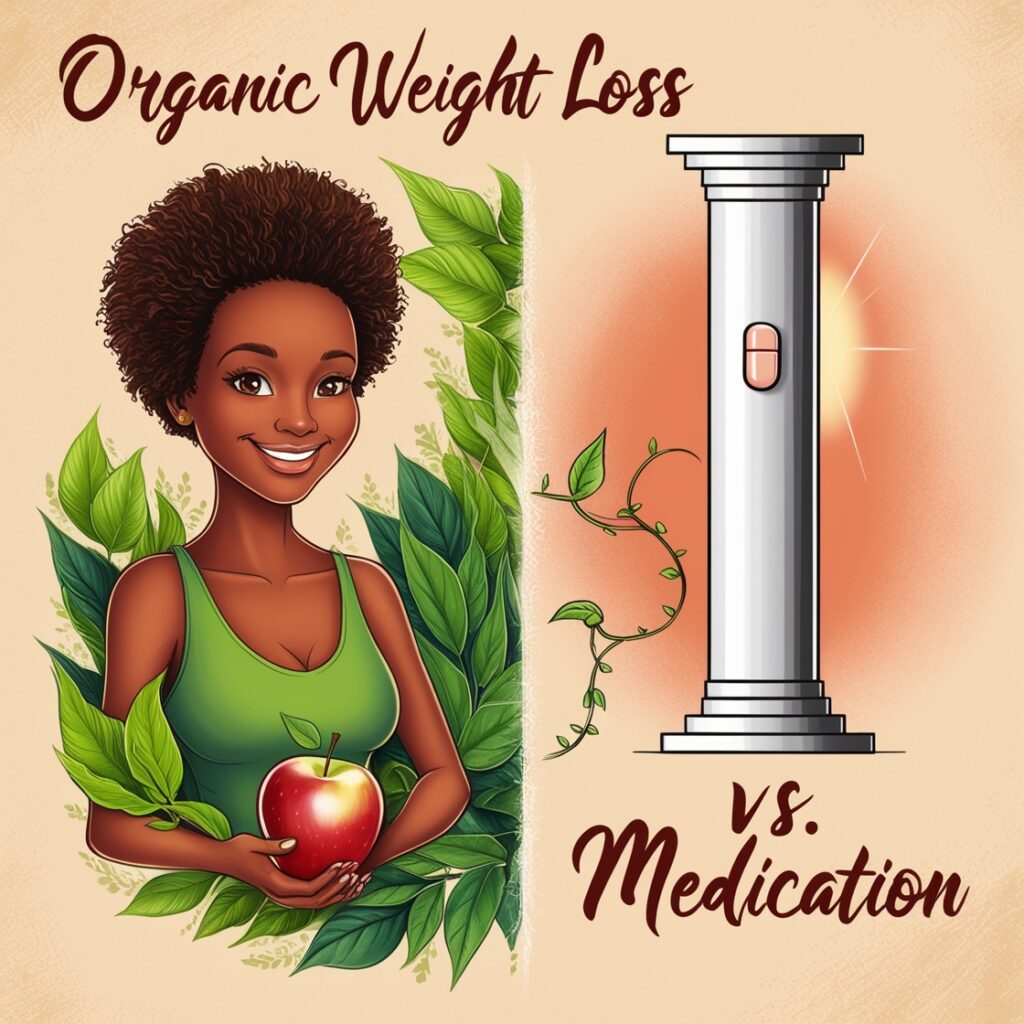In today’s pursuit of health and wellness, weight management stands as a significant goal for many. As individuals explore various methods to achieve their ideal weight, two primary approaches emerge organic weight loss and weight loss medications. Each method offers distinct advantages and considerations, influencing personal choices and outcomes. This article explores these two paths comprehensively, providing insights into their effectiveness, safety, sustainability, and overall impact on health.
Introduction
Weight loss is not merely a cosmetic concern but a crucial factor in maintaining overall health and preventing chronic illnesses. With the rise in obesity rates globally, the focus on effective weight management has intensified. Traditionally, weight loss strategies have included dietary modifications, exercise routines, and more recently, the use of medications. However, organic weight loss methods have gained popularity for their natural approach and perceived long-term benefits.

Understanding Organic Weight Loss
Organic weight loss revolves around natural principles, emphasizing whole foods, plant-based diets, and minimally processed ingredients. This approach prioritizes nutrient-dense foods and avoids artificial additives, promoting healthy metabolism and sustainable weight loss. Supporters of organic weight loss argue that it enhances overall health by providing essential nutrients without the risks associated with synthetic compounds.
The Role of Medications in Weight Loss

Contrary to organic methods, weight loss medications are formulated to alter body processes, such as appetite regulation or fat absorption. These medications are prescribed under medical supervision and aim to accelerate weight loss by targeting specific physiological mechanisms. While medications can yield rapid results, they often come with potential side effects and require careful monitoring to mitigate risks.
Comparison of Effectiveness
Studies comparing the effectiveness of organic weight loss to medications have shown varied outcomes based on individual factors and adherence to the chosen method. Organic approaches typically emphasize gradual, sustainable weight loss, whereas medications may offer quicker initial results but with potential fluctuations and dependency on continued use.
Safety Considerations
Safety is a paramount concern in weight loss journeys. Organic methods generally pose fewer immediate risks compared to medications, which can lead to side effects such as digestive issues, cardiovascular complications, or dependency. However, organic approaches may lack regulation and oversight, necessitating informed choices and consultation with healthcare professionals.
Cost Comparison
The financial aspect of weight loss can significantly influence choice. Organic diets often require investments in fresh produce, supplements, and specialized foods, which may be perceived as costly compared to conventional diets. Conversely, medications prescribed for weight loss can incur ongoing expenses, including consultation fees and the cost of prescriptions.
Accessibility and Convenience
Accessibility plays a crucial role in sustaining weight loss efforts. Organic foods and supplements may be accessible in urban areas but less so in rural regions or areas with limited resources. In contrast, weight loss medications require prescriptions, limiting access based on healthcare availability and regulatory approvals.
Impact on Metabolism
Both organic diets and medications can influence metabolic processes differently. Organic diets typically promote natural metabolic functions by providing essential nutrients and promoting a balanced intake of macronutrients. Medications, on the other hand, may alter metabolic rates to induce weight loss, with implications for long-term metabolic health.

Environmental Impact
Environmental sustainability is increasingly considered in dietary choices. Organic farming practices prioritize soil health, biodiversity, and reduced chemical use, supporting ecological balance. In contrast, medications may have environmental impacts through manufacturing processes, disposal of unused medications, and potential contamination of water sources.
Psychological and Emotional Factors
Weight loss journeys are not solely physical but also encompass psychological and emotional dimensions. Organic approaches often emphasize holistic well-being, incorporating mindfulness, stress management, and community support. Medications may affect mood and mental health, requiring awareness of potential psychological impacts during treatment.
Personalization of Approaches
Personalized weight loss strategies acknowledge individual differences in metabolism, lifestyle, and health conditions. Organic methods offer flexibility in dietary choices and adaptations based on personal preferences and nutritional needs. Medications require personalized prescriptions and monitoring to adjust dosage and manage side effects effectively.

Long-term Health Benefits
The ultimate goal of weight loss is improved overall health and reduced risk of chronic diseases. Organic weight loss advocates argue for sustainable health benefits, including improved cardiovascular health, enhanced immunity, and better digestion. Medications may provide targeted benefits such as reduced diabetes risk or improved blood pressure control but require long-term evaluation for potential health impacts.
Challenges and Drawbacks
Both organic and medication-based weight loss approaches present challenges. Organic methods may require significant lifestyle changes, patience, and perseverance to achieve desired results. Medications may cause dependency, adverse reactions, or fluctuations in weight, necessitating careful management and adherence to medical advice.
Conclusion
In conclusion, the choice between organic weight loss and medications depends on individual preferences, health conditions, and lifestyle factors. Organic methods offer natural, sustainable approaches to weight management with potential long-term health benefits. Conversely, weight loss medications provide rapid results but require careful consideration of safety, costs, and long-term effects. Ultimately, consulting healthcare professionals and making informed decisions based on personal goals and health needs is crucial in achieving successful weight loss outcomes.
The Okinawa Flat Belly Tonic is a new one of a kind weight loss “tonic” supplement. It helps men and women burn fat fast using a simple 20-second Japanese tonic.
Who Buys the Okinawa Flat Belly Tonic?
This offer converts like crazy for men and women over 30 who want to lose weight fast… especially if they’ve tried other diets, supplements and workout plans but haven’t gotten any lasting results click here to get access to the main page

FAQs
- What are the safest organic weight loss methods? Organic weight loss methods prioritize whole foods, plant-based diets, and regular physical activity, emphasizing natural weight management without synthetic additives.
- Are weight loss medications effective for everyone? Effectiveness of weight loss medications varies based on individual metabolism, adherence to treatment, and potential side effects. Consultation with a healthcare provider is recommended.
- How do costs compare between organic and medication-based weight loss? Organic diets may involve higher initial costs for fresh produce and supplements, whereas weight loss medications incur ongoing expenses such as prescription costs and medical consultations.
- Can organic diets alone achieve significant weight loss? Organic diets can contribute to significant weight loss when combined with exercise and lifestyle modifications. Results may vary based on individual factors and adherence.
- What are the long-term health risks of weight loss medications? Long-term use of weight loss medications may pose risks such as cardiovascular complications, digestive issues, or dependency. Regular monitoring and healthcare oversight are essential.

